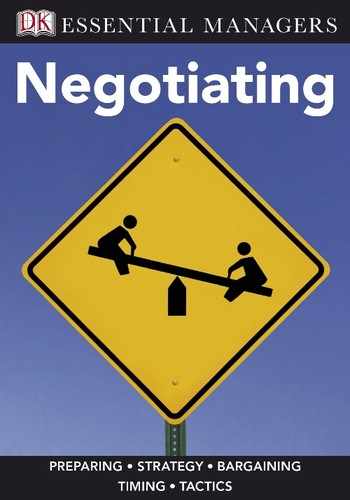Making Offers and Counteroffers
Before you go into a negotiation, it is vital to plan your opening move. Do you open negotiations and make the first offer or do you wait and allow the other party to go first? Make sure that you have an opening offer in mind, and plan how you will respond to your counterpart’s offers.
Knowing when to go first
Some experts suggest that you should not make the first offer and should always allow your counterpart to go first. Skilled negotiators, however, question the conventional “never open” rule. They choose to tailor their approach to each negotiation. How should you decide whether to go first or second? You should present your offer first when you are confident in the thoroughness of your due diligence and also when you suspect that your counterpart is ill-informed. By going first, you will “anchor,” or set a benchmark, that will be used as a reference point for the counteroffer.
If you are not fully informed, do not go first. Consider the other party’s first offer, do not respond to it, and do your due diligence. In some cases, two negotiators are equally skilled and well informed and neither wishes to go first. Such cases often require the involvement of a trusted third party to act as a neutral go-between and get the negotiations started.

Setting your offer
Whether you present your offer first or second, how high should your offer be? Former US Secretary of State Dr. Henry Kissinger believes that a negotiator is better off starting with a high offer. Most negotiators, however, tend to negotiate first with themselves and thus restrain themselves from making bold offers. They tend to justify their modest offers by thinking that their counterparts would not go for a higher offer. Experts today suggest that a seller who puts forward a high offer may risk his or her credibility and offend the buyer, who may very well walk away without even providing a counteroffer. Instead of coming up with offers that are either too high or too modest, it is often better to make offers that are bold and daring. Bold and daring offers are reasonably high, tend not to be acceptable, but are still negotiable.
Possible responses to tough opening offers
It is easy to be thrown if the other party’s opening offer is extremely low. Effective negotiators make sure that they are not startled by a tough first offer, and avoid making a quick, emotional reaction. It is vital that a low opening offer does not become a benchmark for the negotiation. Possible responses to low offers include rejecting the offer as unreasonable; asking the other party to revise the offer; or asking questions and probing the other party for justifications for the toughness of the offer.
TIP
If you are hoping to form a long-term relationship with the other party, do not take advantage if they make you a very low first offer. You will generate goodwill and nurture the relationship if you instead respond with a counteroffer that is higher, but still reasonable to you.
